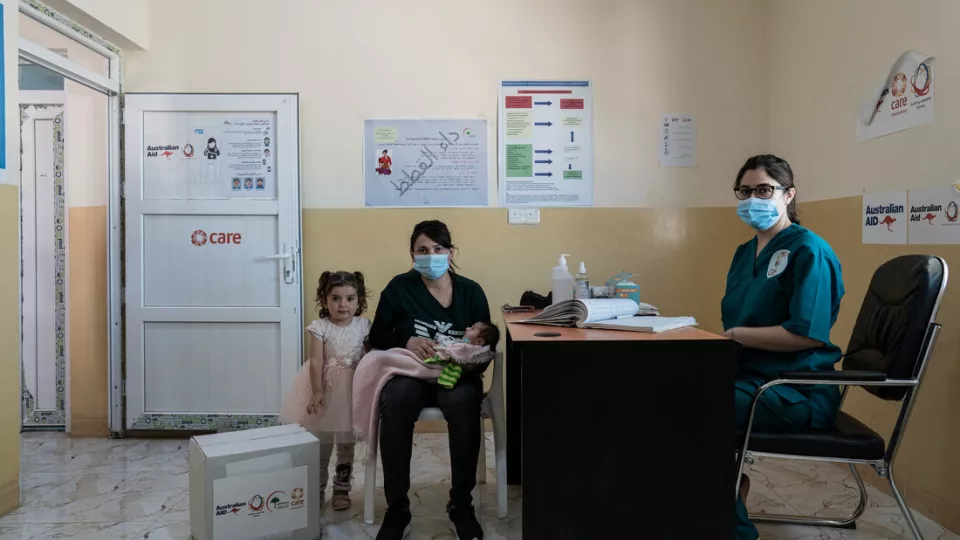Midwives are an essential part of a safe birth. They accompany expectant mothers medically, give them support and security. They support them before, during and after giving birth. They are often more than just medical personnel; midwives are caregivers, educators and confidants. Despite adverse circumstances, they perform the unimaginable for mother and child. They are heroines who stand up for life every day.
CARE is particularly committed to the rights of women and girls worldwide. This includes protecting mothers and newborns and supporting the work of midwives worldwide. CARE trains midwives, operates mother-child wards that enable safe births, and educates women about their rights, family planning and contraception.
The situation of midwives in the crisis and post-conflict contexts of Iraq and Côte d'Ivoire shows how midwives often compensate for the shortcomings of resource-poor and sometimes dysfunctional health systems through an (overly) high level of personal commitment. However, the responsibility for reliable access to sexual and reproductive health and rights should not depend solely on the individual commitment of midwives. This report postulates a number of recommendations for programmes, donors and states to improve the role and agency of midwives in health systems.
